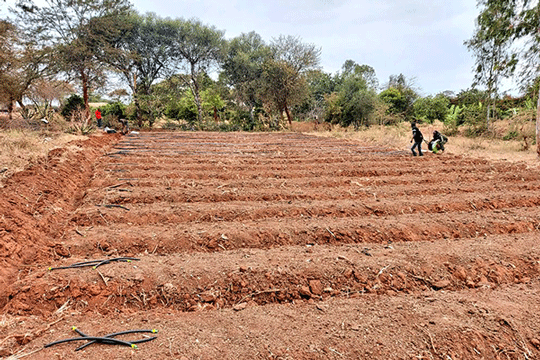The Federal Ministry of Agriculture and Food Security under the National Agricultural Growth Scheme and Agro Pocket Programme, has met with critical stakeholders to strategise on the implementation of the second phase of the 2023/2024 dry season farming.
Participants at the meeting said the move was in line with the directive of President Bola Tinubu, adding that they aimed to ensure the adequate provision of food that would drive down food inflation and boost production.
A statement from the agric ministry on Sunday stated that the stakeholders met in Abuja at a meeting attended by the Minister of Finance and Coordinating Minister for the Economy, Wale Edun, and Minister of Budget and Economic Planning, Atiku Bagudu.
In his address at the meeting, the Minister of Agriculture and Food Security, Sen. Abubakar Kyari, said the objective of the forum was to review the implementation of the 2023/2024 dry season wheat production implemented in the 15 wheat-producing states based on their comparative advantage.
He noted that the forum was also a preparatory meeting to chart a new course for the implementation of the second phase for rice, maize and cassava.
Kyari said the project aside from supporting farmers with critical farm inputs for the production of the priority crops, would also provide institutional support for better performances and sustainability, particularly in the areas of wheat production.
He revealed that there were observed lapses in the implementation process, hence the need for a collective and comprehensive evaluation of the efforts put in place and proffer qualitative remedial measures to forestall their reoccurrence.
He said all necessary machinery and strategies would be put in place to address all the observed lapses and infractions from all parties.
The minister pointed out that officers deployed to manage and coordinate the supply chain activities should adhere strictly to the laid-down rules and guiding principles.
“The ICT platform providers are to deploy the best and reliable system that can capture and trace all the transactions under the agro-pocket, being the primary purpose the government decided to utilise technology in the inputs delivery process to promote transparency, accountability and easy tracking of the impacts and performance,” he stated.


